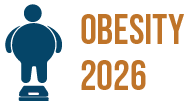3rd International Conference on
Obesity and Weight Management
June 04-05, 2026 | Paris, France

Obesity 2026

VIT Bhopal University, India
Abstract:
Digital health tools are now everywhere in obesity care, and their role is anything but simple. Apps, wearable trackers, and online consultations can make weight monitoring and lifestyle support far more accessible. Yet, in some cases, they seem to pull people into longer stretches of sitting, which can undercut the very goals they aim to support. This review looks at recent studies to get a clearer picture of that trade-off — how these technologies can both encourage healthier habits and, unintentionally, promote inactivity. We discuss possible reasons for this mixed impact and suggest practical ways to keep the benefits while limiting the downsides. The aim is to give healthcare providers and tech developers a grounded, realistic view of how to use digital tools more effectively in obesity prevention and treatment.
Biography:
Ashutosh Kumar Singh is currently pursuing his PhD from VIT Bhopal University, Madhya Pradesh, INDIA. He has contributed to 5 research articles in reputed journals, focusing on topics including viral epidemiology, environmental surveillance, and advanced molecular detection techniques. His work integrates interdisciplinary approaches in microbiology, molecular biology, and public health. He has also been actively engaged in collaborative projects and peer review activities.
